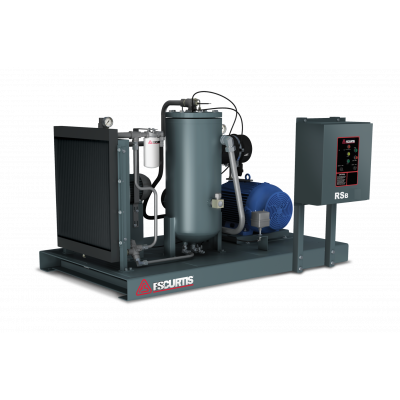Reciprocating air compressors are an essential tool for many jobs, from painting to industrial manufacturing. They provide a reliable source of pressurized air for power tools, and can be used for everything from powering pneumatic tools to providing air for sandblasting. When selecting a reciprocating air compressor, one of the most important specifications to consider is CFM, or cubic feet per minute. This article will focus on 81 to 90 CFM reciprocating air compressors, and discuss their advantages and disadvantages.
What is CFM?
Contents
CFM stands for cubic feet per minute, and it is a measure of the volume of air that can be delivered by a compressor. The higher the CFM, the more air the compressor can produce. CFM is an important specification for reciprocating air compressors, as it determines how powerful the compressor is and how much air it can provide.
Advantages of 81 to 90 CFM Reciprocating Air Compressors
1. Powerful Air Delivery – 81 to 90 CFM reciprocating air compressors provide a powerful source of pressurized air, making them suitable for powering large pneumatic tools and operating industrial machinery. This makes them an ideal choice for industrial applications, such as manufacturing and metalworking.
2. Flexible – 81 to 90 CFM compressors are also flexible, as they can be used for a variety of tasks. From sandblasting to powering pneumatic tools, these compressors can handle a wide range of jobs.
3. Easy to Maintain – 81 to 90 CFM compressors are relatively easy to maintain, as all that is required is to change the oil and filter regularly. This makes them a great choice for those who don’t want to spend a lot of time and energy on maintenance.
Disadvantages of 81 to 90 CFM Reciprocating Air Compressors
1. Cost – 81 to 90 CFM reciprocating air compressors are more expensive than lower CFM models. This makes them an impractical choice for those on a tight budget.
2. Size and Weight – 81 to 90 CFM compressors are larger and heavier than lower CFM models. This makes them difficult to transport and can make them awkward to use in tight spaces.
3. Noise – 81 to 90 CFM compressors are louder than lower CFM models. This makes them unsuitable for use in quiet environments, such as offices or workshops.
Conclusion
81 to 90 CFM reciprocating air compressors offer a powerful source of pressurized air, making them suitable for industrial applications. However, they are more expensive than lower CFM models, and they are larger and heavier, making them difficult to transport and awkward to use in tight spaces. They are also louder than lower CFM models, making them unsuitable for use in quiet environments. For those looking for a powerful compressor for industrial use, 81 to 90 CFM compressors are an ideal choice. However, for those on a tight budget or looking for a quieter compressor, lower CFM models may be a better option.

